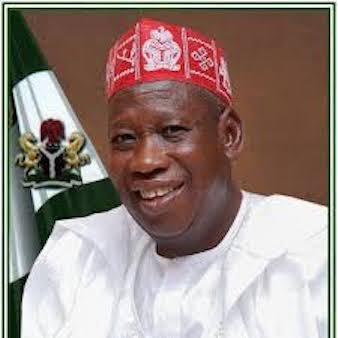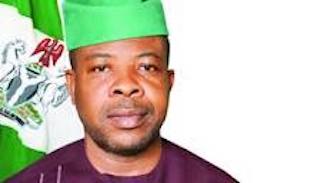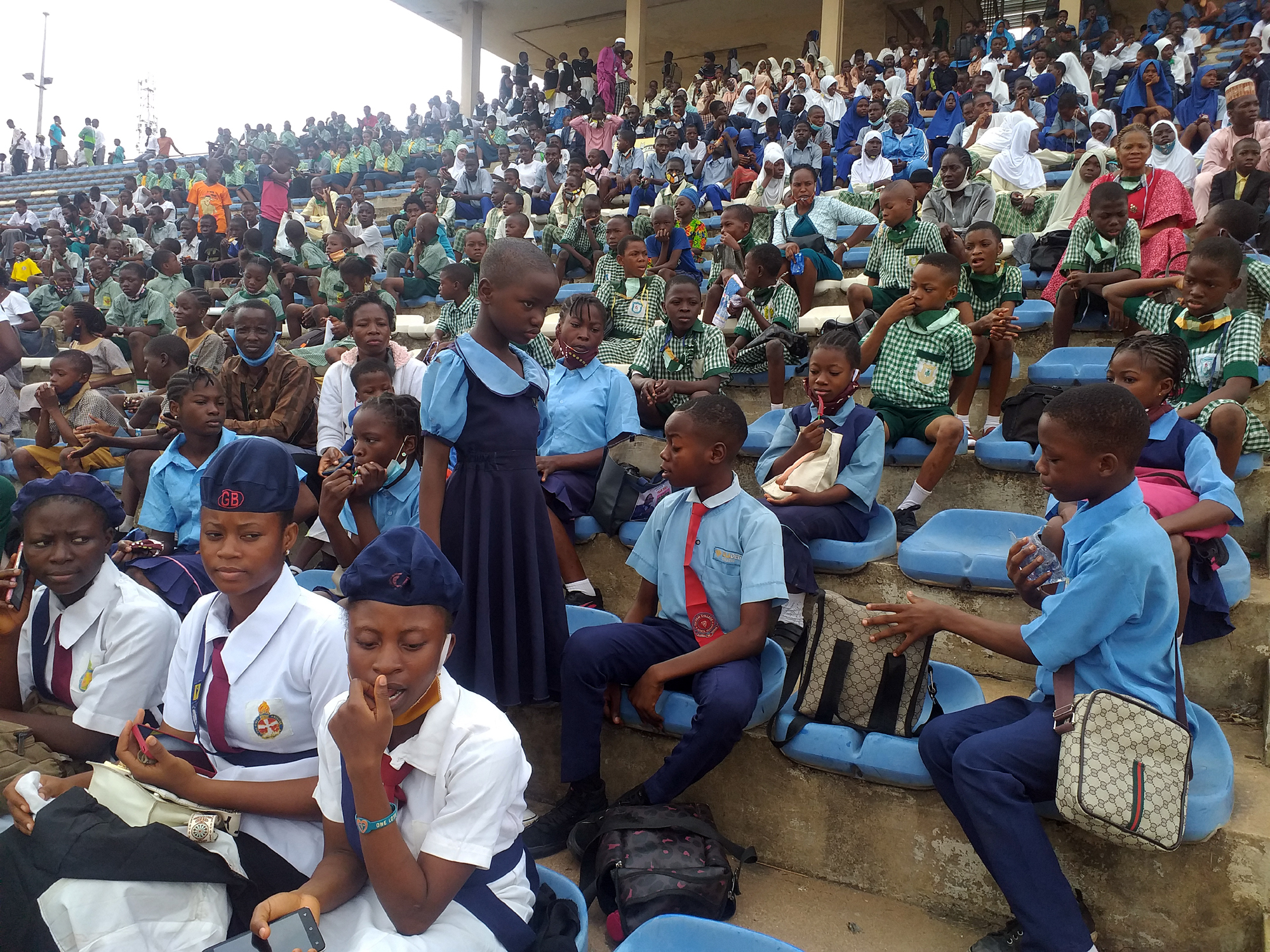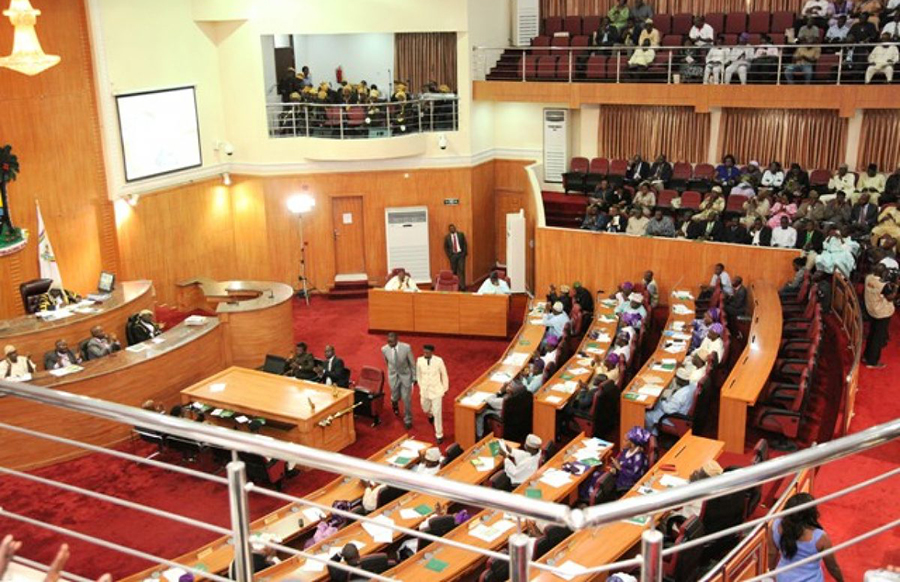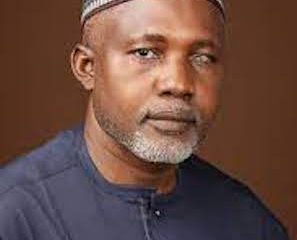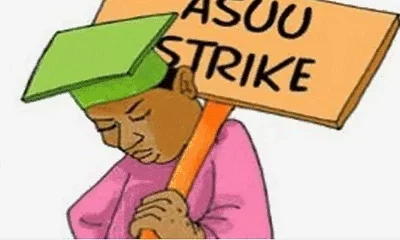OPINION
Bayelsa 2020: Who The Cap Might Not Fit
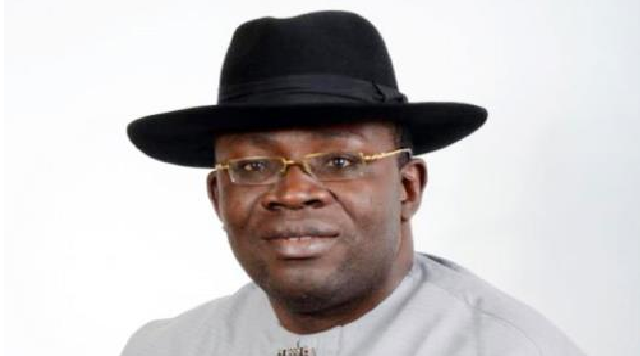
By Joshua Ebiegberi
On February 14, 2020, the only Valentine’s Day governor in Nigeria would bid farewell to the Creek Haven seat of power in Bayelsa State. That day, the Honourable Henry Seriake Dickson would have completed eight remarkable years as governor of the most riverine and deltaic state in Nigeria known as the Glory of All Lands.
Without doubt, the towering figure commonly called the Countriman Governor would be leaving not only very big shoes for his successor but also an oversized bowler hat.
Apart from his hugely successful and impactful developmental strides across the state, his oratorical prowess would also be difficult to match.The governor’s zeal and passion to change the narrative about the state has stood him out. Today, Bayelsa’s story is intertwined with that of a man who bestrode the state like a colossus; not only transforming it but equally changing the governance culture. In every facet of the state, the Dickson imprint is indelible. The touch of the Ofurumapepe (the Great White Shark) can be felt even beyond the shores of the Jerusalem of the Ijaw Nation.
On November 16, 2019, Dickson’s successor would be elected, according to the timetable released by the Independent National Electoral Commission (INEC). The expectation is that his Peoples Democratic Party (PDP) would again produce the next occupant of the iconic Governor’s Office he built. This expectation is consistent with the fact that the PDP had won every governorship election in the state since 1999 when the country returned to democratic rule.
The governor’s sterling performance in office has made it even more difficult for any other political party to think about staging an upset in the November poll. This is regardless of the pretensions of the opposition All Progressives Congress (APC) governorship aspirants, namely Chief Timipre Sylva (a former PDP governor of the state), and the immediate past Minister of State for Agriculture, Senator Heineken Lokpobiri. The latter was also a PDP state and federal legislator.
Already a titanic battle is brewing in the APC over the ambition of both aspirants. Interestingly, the duo, who were appointees of President Muhammadu Buhari, could not attract any significant project to the state throughout the president’s first term of four years.
So, their ambition has a huge question mark hanging over it. With what are they going to campaign? Some others are asking what Sylva forgot in the Government House that he wants to reclaim when his five years as governor were marked by waste, lack of focus and below par performance.
In any case, the PDP governorship ticket appears more attractive. At the last count, no fewer than 15 individuals are said to have indicated interest to succeed the current occupant.
The list includes a former Secretary to the State Government (SSG), retired federal Permanent Secretary and envoy, Ambassador Godknows Boladei Igali, a former Managing Director of the Niger Delta Development Commission (NDDC), Chief Ndutimi Alaibe, a philanthropist and businessman, Chief Reuben Okoya, the current SSG, Mr. Kemela Okara, a lawyer and the defunct Action Congress of Nigeria governorship candidate in 2012 as well as the Chairman, Bayelsa State Board of Internal Revenue, Dr. Nimibofa Ayawei.
Others are the immediate past Director-General, Nigeria Atomic Energy Commission, Dr. Franklin Osaisai, an oil magnate, Mr. Keniebi Okoko, a former chairman of the state PDP, Deacon James Dugo, Chief Great Joshua Maciver, a retired Permanent Secretary, ex-Director of Protocol and currently chairman of the state Land Use Allocation Committee, Mr. Joseph Akedesuo among others.
Several considerations will determine who eventually picks the single ticket. Chief among which is the input of the governor, who is the undisputed leader of the party in the state. Dickson has a firm and unshakable grip on the party with his influence and significance further boosted as chairman of the PDP Governors Forum. So his preference and support for any aspirant definitely carry a lot of weight.
Interestingly, this also comes with a burden, which he recognises. But he has elected to be a team player. He said he would toe the path of consulting other critical stakeholders in the state and the party, including former President Goodluck Jonathan, who he calls “my elder brother and leader.”
According to him, the PDP candidate would not be the product of an imposition but rather would emerge through the right process of consensus and consultation.
His words: “I led the party (PDP) to victory against a vicious opposition. I can lead PDP to victory again. I have done it repeatedly.
“In the primary election, there will be no form of manipulation. People talking about manipulation are anticipating that they should be imposed. I am not going to impose any of them. Any of them who feels he has the capacity and experience should make his case before the party and the people of Bayelsa.
“I hope the right person with competence and capacity emerges to build on the foundation my team and I have laid over the past seven years plus. I have no doubt that the right person would emerge with my support.”
The Jonathan factor is also being touted by those who think the former President can still pull the required strings to get his choice candidate to scale the hurdle. But at the moment, this could be a far-fetched expectation. Feelers within the state PDP indicate that the support and endorsement of the former president alone might no longer carry the expected weight. Jonathan’s taciturnity and aloofness towards affairs of the party in the state has largely whittled down his influence. In recent months, even his loyalty to the PDP and that of his foot soldiers has been called to question.
This insinuation was fuelled by the tacit support for candidates of the APC and the Action Democratic Congress (ADC) by his henchmen during the last general election. Most of his henchmen were said to have engaged in anti-party activities, particularly in his Ogbia local government area. As a consequence, aspirants like Alaibe and even Okoya, who are perceived to be banking on the Jonathan factor, could be left with the short end of the stick.
Another topical but contentious issue is that of the zone that would produce the PDP candidate. The governorship slot has gone round the three senatorial districts at different times in the last 20 years under the PDP. The late Chief Diepreye Alamieyeseigha, an indigene of Amassoma community in Southern Ijaw Local Government Area, took the Bayelsa Central slot as the first elected governor of the state from 1999 to 2005.
Bayelsa East has been more fortunate to produce two governors. Dr. Jonathan completed Alamieyeseigha’s tenure in 2007 and had picked the governorship ticket to start his own tenure before he was nominated as the late President Umaru Yar’Adua’s running mate and eventually became Vice President. He is from Otuoke community in Ogbia Local Government Area. Sylva (from the same zone), an indigene of Okpoama in Brass Local Government Area, was then handed the PDP ticket and was governor from 2007 to 2012.
Dickson, from Toru-Orua in Sagbama Local Government Area under Bayelsa West, stepped in in February 2012.
So which zone would be the next beneficiary? Many clamour that the fresh rotation should begin with Bayelsa Central having produced the first civilian governor in Alamieyeseigha but who didn’t complete his tenure. This agitation and expectation has resulted in a high number of aspirants from the zone indicating interest in the PDP ticket.
Two related political events might however scuttle the aspiration of some of the contenders from the zone. On June 6, 2019, Hon. Tonye Isenah was elected Speaker of the sixth session of the Bayelsa House of Assembly. He is a third term member representing Kolokuma/Opokuma Constituency 1. Kolokuma/Opokuma local government area is under the Central Zone.
On February 23, 2019, Douye Diri (then member representing Yenagoa/Kolokuma/Opokuma Federal Constituency in the House of Representatives) was elected senator representing the Central Senatorial District. He also hails from Kolokuma/Opokuma local government area.
What is significant about these two events is that for the first time in the political history of the state, Kolokuma/Opokuma has produced the speaker of the assembly as well as the senator representing the zone at the same time.
This has however thrown up a fresh dynamics. Would the central zone and particularly Kolokuma/Opokuma still be justified to seek the governorship ticket of the party having produced the speaker and a senator? Would Bayelsa East in particular not feel shortchanged and alienated if the governorship eludes the zone? How would Bayelsa West take the political recalibration despite having the governorship slot for eight years?
Importantly, what happens to the aspiration of the governorship aspirants from the central zone? The case of a serial contender like Alaibe, who is also from Kolokuma/Opokuma council, appears quite instructive. He is believed to have returned to the PDP with his eyes solely fixed on the governorship ticket. Would his aspiration be aborted or would he pursue it on another platform if the PDP door is again shut against him?
A political analyst described the election of Diri and Isenah as the masterstroke of highwire politics. The perceived frontrunners might have lost out even before the real contest began.
Regardless of the permutations, many Bayelsans are of the view that Dickson’s successor should be a focused politician or technocrat with a clear Ijawcentric agenda. The outgoing governor has so far left no one in doubt about his desire to promote the Ijaw culture, tradition and renaissance. He wholly epitomised it in his dress sense, which always stood him out as a proud Ijaw ambassador.
The governorship cap might also not fit those without any business interest or key stake in the state. Bayelsans are tired of mercenary politicians that appear only during election seasons. They beat a fast retreat once they are unable to achieve their aspiration and reappear the next election cycle to hoodwink the people again. Such politicians do not feel the pulse of the people they seek to represent or govern.
In this category are the itinerant politicians who change parties at the drop of a hat. They do not build their parties. Rather they are opportunists. Their singular aim is to occupy the Creek Haven but do not invest in the youths or women in the state.
Bayelsa does not also need anyone who thinks the governorship is his birthright. Such aspirants surreptitiously sponsor media campaigns to run down every sitting administration. If they are not the ones in the saddle, any other person is not good enough.
The man Bayelsa needs must have a clear blueprint on how to develop the state with well-articulated short, medium and long term goals and projection. Somebody who will create the required environment for jobs and positive engagement of the youths.
Somebody who will further the exceptional legacies of the Dickson administration and not seek to destroy them. A team player and not a wheeler-dealer politician who will mortgage the state’s interest on the altar of personal aggrandisement.
The state no longer needs a governor that does not have a zero-tolerance to violent politics or cultism. Enough of the bloodshed arising from cult and gang rivalries. The streets of Yenagoa must not be allowed to be watered any longer with the blood of the youths whose patrons are politicians.
*Ebiegberi, a public affairs analyst and political commentator, writes from Yenagoa, Bayelsa State
OPINION
Period Poverty: Prioritizing Menstrual Health in Nigeria’s Policy Agenda
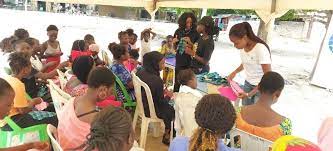
By Halimah-Sa’dia Nuhu Sanda
As a predominantly healthy biological phenomenon and the most universal and peculiarly womanly experience, menstruation should not be a barrier to education or hinder a girl’s ability to participate fully in daily life. Yet for millions of women and girls in Nigeria, it does.
In fact, every month, thousands of adolescent girls and women in the world struggle to cope with their monthly periods.
This is because many of these girls cannot afford or access appropriate menstrual products and depend on crude, improvised materials for managing their menstruation, such as bits of old clothing, foam mattress, toilet paper, leaves, and banana fibers. These improvisations are ineffective and uncomfortable.For many girls, the first experience of menstruation is associated not with knowledge and understanding of the normal biological process but with confusion, shame, and a poor quality of information on how to deal with it. Even today, the menstrual process is heavily stigmatised in Nigeria, preventing girls from engaging in regular activities.
A lack of decent sanitation and menstrual hygiene facilities in schools creates barriers to attendance even for girls who can afford supplies at home. Every girl deserves the opportunity to pursue her education and develop to her full potential without the restrictions that her biological cycle imposes.
With a combination of frequent, embarrassing leaks, a susceptibility to recurrent infections, the stigma surrounding menstruation, and the lack of proper information and sanitary materials available, millions of girls and women experience their monthly period as something that prevents them from engaging in daily life, often compelling girls to miss school or discontinue their studies entirely. In a nation where education is broadly accepted as a form of empowerment and socioeconomic growth, the implications of menstrual inequity are particularly insidious.
The bottom line is this: menstruation should be a normal fact of life, not an ailment that steals girls’ futures. However, ensuring menstrual equity for the emerging generation of Nigerian girls and women is more than just a question of rights; rather, it is one of the most dynamic investments Nigeria can create in its development, economics, and human capital. But perhaps the most essential component is that the hideous ripple effects of period poverty on girls’ education amplify gender inequalities and inequities across all spheres.
In January 2020, the Nigerian government took a significant step toward achieving menstrual equity. Sanitary towels, pads, and tampons were exempted from the value-added tax as part of the new Finance Bill signed by then-President Muhammadu Buhari.
According to the statement of the Office of the Vice President, the Nigerian government said, “In a bid to ensure that the cost of living does not rise for Nigerians because of the changes in the Value-Added Tax, several basic food items, locally manufactured sanitary towels, pads have been added to the exemption list.”
This act on the part of the government aimed at relieving financial burdens on women and girls, especially those from economically disadvantaged backgrounds, was an acknowledgment of the natural entitlement to manage periods in decency. Girls and women have a human right to menstrual dignity, and no government should be able to tax our periods by making feminine hygiene products a luxury. For too long, the combined costs of sanitary products and taxes have placed an unfair financial burden on Nigerian girls and women simply for being female.
While the introduction of lower prices for sanitary products is commendable, the harsh reality persists: far too many girls are still unable to access basic menstrual hygiene products due to the financial constraints it imposes. UNICEF estimates that one in ten girls in sub-Saharan Africa misses school during her period; at the same time, as much as 20 per cent of the school year is missed as a direct result of menstrual poverty.
The 2013 National Demography and Health Survey data (NDHS) says about 60 per cent of the 10.5 million out-of-school children in Nigeria dropped out due to period poverty. When adolescent girls are forced to miss weeks of school each year simply for experiencing their periods, their academic performance deteriorates, their economic prospects become bleak, and the resulting ripples can throw their whole future trajectories off course.
The World Bank’s report “A Better Future for All Nigerians: Nigeria Poverty Assessment 2022” estimates that nearly two out of five citizens live below 1.90 U.S. dollars per day as a national poverty line. In contrast, 2019 data from the National Bureau of Statistics shows that 40 per cent of the population in Nigeria—almost 83 million people—lives below the national consumption poverty line, which is N137,430 ($134.73) per annum.
With an average pad price of N550 and the current economic crisis, which has exacerbated the socioeconomic vulnerabilities faced by the poor on all fronts, including the menstrual hygiene crisis, this crisis has never been more pressing.
Studies have shown a correlation between infant mortality and maternal education in developing countries. A 2013 study found that an increase in maternal education could reduce infant mortality rate by 51.2 per cent. According to UNICEF, children of uneducated mothers are 2.8 times more likely to die before the age of 5 compared to those whose mothers have a secondary education.
Another 2019 study in India revealed that infant mortality was 51 per cent higher among children of uneducated mothers. Meanwhile, the 2018 NDHS showed that infant mortality is at 67 deaths per 1000 for mothers with no education, compared to 36 deaths per 1000 for mothers with secondary or higher school education.
This overwhelming evidence indicates that increasing access to education for girls is an effective way of saving the lives of infants in developing countries. An educated mother is less likely to have high-risk pregnancies, more likely to practice essential newborn care, and better prepared to make informed choices about her sexual and reproductive health. If we help our girls and women manage their menstruation easily while keeping them in school, we empower them to become society’s driving forces of change. Quite simply, educated women raise healthier societies.
Many individuals and organisations have undertaken various initiatives to tackle this problem. In 2018, UNICEF, with financial assistance from Canada, trained 40 girls from four senior high schools in Osun State on the production of reusable sanitary pads. There are organisations such as the Pad-Up Foundation and Pad A Girl Foundation. Yet much more funding and nationwide scale are needed to deliver menstrual equity as a norm, not an exception, across the country.
Although the VAT exemption was a step forward, it’s time to redouble our efforts on guaranteeing menstrual dignity to all women and girls. As things stand, there are still systemic barriers preventing the country’s poorest menstruating populations from achieving it.
Experience in other countries has shown that free provision of sanitary pads and tampons in schools, alongside menstrual health education, can be both revolutionary against period poverty and keep a whole lot more girls at school. Subsidizing local production of low-cost, reusable sanitary pads can make them more affordable and sustainable while also giving women entrepreneurs an economic opportunity to create some wealth.
With tight budgets and a lot of development needs, some people may question if sanitary products deserve our top priority, and critics may even argue that handouts create dependence. It is imperative to realise that menstrual equity is not only a woman’s issue; it is a social matter that demands urgent attention.
Every girl has the right to study and the ability to achieve her potential, free from the restrictions imposed by her biology. Therefore, it should be viewed as a right of humanity, not charity. It is an investment in human capital that will appreciate, producing generations of healthier, better educated, and more economically productive Nigerian women.
Half the earth’s population is born with this biological characteristic. By treating period poverty as equally important to public health as other key social determinants, Nigerian leaders will be striking a powerful chord for gender equity. With affordable sanitary protection and education, Nigerian girls will no longer have their dreams and futures derailed each month by something as fundamental as their own biology. The future productivity, wealth, and empowerment of Nigerian girls and women merit such an investment.
Halima Sanda wrote from Kano
OPINION
Yahaya Bello and a Complicit Judiciary
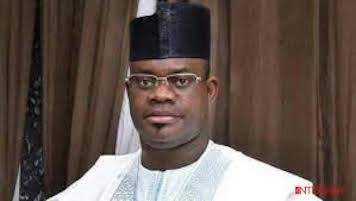
By Chidi Anselm Odinkalu
Josiah Majebi is the fifth Chief Judge of Kogi State (in north-central Nigeria) in four years and the fourth to exist almost entirely in the pocket of the state governor. He has been in office as substantive Chief Judge since the beginning of February 2023, having acted in that role since 26 June 2022 when his predecessor, Richard Olorunfemi, retired.
Henry Olusiyi served in that office for just under seven months from the end of June 2020 until January 2021. Sunday Otuh, who succeeded him, spent eight months in office before retiring in September 2021.The last Chief Judge of Kogi State who attempted to hold that office with dignity and independence, Nasir Ajanah, paid with his life, un-mourned and exiled from the state.
He was the second Chief Judge of the State to be politically lynched by the government of Kogi State in one decade.At the beginning of April 2008, the Kogi State House of Assembly, defying an order of the state High Court, adopted a resolution asking the State Governor to remove long-serving Chief Judge of the State, Umaru Eri. On that basis, then acting governor, Clarence Olafemi, promptly announced the sack of the Chief Judge on 2 April 2008 and designated another judge, Sam Ota, to act in his place.
In his defence, Umaru Eri claimed that his crime was that he had declined the request of the politicians to act as go-between in bribing the election petition tribunal on behalf of the then state governor whose election was in dispute. On 16 May, 2008, Alaba Ajileye, a judge of the High Court of Kogi State, reversed the sack and reinstated Umaru Eri.
Eleven years later, on 18 June 2019, Alaba Ajileye presided again in deciding a case that seemed uncannily to reprise issues in his earlier decision. As with the 2008 decision, the claimant in 2019 was another Chief Judge of Kogi State, Nasir Ajanah with his Chief Registrar, Yahya Adamu. The defendants included the Kogi State House of Assembly, its Speaker, and the State Governor, Yahaya Bello.
At the directive of Governor Yahaya Bello, the Secretary to the Government of Kogi State wrote on 14 November, 2018 to Chief Judge Nasir Ajanah, asking him to provide “the payroll of judicial staff for the ongoing pay parade of civil servants in the state.” At the time, the Governor was a defendant in the court of the Chief Judge, so the Chief Registrar responded to the letter and explained that the judiciary was a self-accounting and co-equal branch of government supervised by the state Judicial Service Commission.
An affronted Governor Yahaya Bello wrote under his own name to Walter Onnoghen, then Chief Justice of Nigeria and Chair of the National Judicial Council (NJC), asking the NJC to find the Chief Judge guilty of misconduct and requiring that he “step aside and (an) Acting Chief Judge allowed to take his place.”
While his petition was still waiting for the attention of the NJC, Yahaya Bello resorted to political self-help. He referred the perceived effrontery of Nasir Ajannah to the State House of Assembly, which promptly constituted an investigation committee. The Chief Judge sued. While his suit was pending, on 2 April 2019, the State House of Assembly adopted a resolution asking Yahaya Bello to remove the Chief Judge and also requiring disciplinary action against the Chief Registrar.
On 18 June 2019, Alaba Ajileye sitting as the High Court of Kogi State in Kotonkarfe, determined that the Kogi State House of Assembly and the Governor acted unlawfully in seeking to remove the Chief Judge.
The reaction of the governor was bestial. He first went after Alaba Ajileye, a man of courage and learning whose judicial record was unblemished. With a doctorate degree in law, Alaba Ajileye was an expert in the rarefied subject of digital evidence. Following this judgment, however, Yahaya Bello’s government made it known that they could no longer guarantee his safety.
Yet, when he was put forward for elevation to the Court of Appeal, the same Kogi State government actively blocked it. A man who would easily have adorned the Supreme Court with distinction, Alaba Ajileye retired from the High Court in February 2023 and has since then forged a career as a scholar and academic.
Turning to the State Chief Judge, meanwhile, Yahaya Bello made life unbearable for Nasir Ajannah. He began by banishing the man from official state functions. When Chief Judge Ajannah attended the swearing in of the new Grand Khadi of Kogi State on 21 May 2020, the Chief Security Officer to Yahaya Bello informed him that “the governor gave a directive that he should not be allowed to attend the function.”
In the middle of the COVID-19 pandemic, Governor Yahaya Bello made Nasir Ajannah persona non-grata in the state. As a result, he was forced into internal displacement in Abuja, where his personal arrangements were worse than transitory. While in hiding in Abuja, Nasir Ajannah contracted COVID and died in isolation in Gwagwalada in the Federal Capital Territory on 28 June 2020. His death went unacknowledged and even the institutions of the judiciary were reluctant to mourn his passing.
The men who followed Nasir Ajannah in the office of Chief Judge of Kogi State learnt to stoke the vanities of Yahaya Bello and avoid his anger. Ahead of his departure from office at the end of eight years as governor of Kogi State in January 2024, Josiah Majebi as Chief Judge and Chair of the Kogi State Judicial Service Commission, prepared a list of candidates for nomination as judges of the High Court of Kogi State.
At the top of the list was a wife to Yahaya Bello the basis of whose claim to the nomination was the dutiful fulfilment of the duties of connubium in Yahaya Bello’s bedroom. For the Chief Judge, it was also proof that he had truly abjured any pretensions to a mind of his own.
Alarmed at what they saw as perversion of the system of judicial appointments, a group of seven Senior Advocates of Nigeria (SANs) from the State wrote to Josiah Majebi to dissuade him from this course of action. In January 2024, they sued challenging his judicial nominations. Pending the outcome, the NJC suspended the process of appointment to the Kogi State judiciary.
On 18 April 2024, James Omotoso, a judge of the Federal High Court in Abuja many of whose judgments usually have something of a smell problem about them, implausibly ruled that these SANs had no legitimate interest in the process of appointment of judges in their state and that, in any case, the discretion of the NJC in appointment of judges was effectively not open to review.
It was the day after Yahaya Bello’s chosen successor and blood relative, Usman Ododo, chose to turn his predecessor into a fugitive from legal process and two days after Mr. Ododo opened his case in the petition questioning the lawfulness of his election as governor of Kogi State.
As a bungling Economic and Financial Crimes Commission (EFCC) waited to arrest Yahaya Bello in Abuja, one I.A. Jamil, a judge of the High Court of Kogi State, issued an order claiming to restrain the Commission from doing its job.
According to the order of the judge, the case which was filed over two months earlier on 8 February, was hurriedly assigned while the siege was on going in Abuja, argued, heard and decided and the judge quickly signed the order and handed it to Governor Ododo to take with him to Abuja from where he spirited his cousin away from legal process in a blaze of gunfire. The court was almost assuredly disingenuous about the date of filing. In all likelihood, the case was filed same day on 17 April and then back-dated.
The EFCC now claims it has declared Yahaya Bello a fugitive but the real question will be how a compromised and complicit judicial leadership will now treat the nomination of his unqualified wife as a judge and the petition against the declaration of his violent cousin as governor of Kogi State. The judges who currently control Nigeria’s criminal politics now must show how much they owe Yahaya Bello.
A lawyer and a teacher, Odinkalu in can be reached at chidi.odinkalu@tufts.edu
OPINION
The Naira Abuse Palaver

By Dakuku Peterside
There is no disputation that naira abuse or more specifically the act of spraying money at social events has become an acceptable norm or cultural practice in Nigeria. Nigerians have a cultural affinity for lavish social gatherings. Many people regard these occasions as avenue for displaying social statuses and wealth.
Spraying naira notes, and other currency notes, at events progressively appear to be the ultimate way to flaunt one’s social standing.Even burials that are supposed to be sober moments have been turned into considerable fanfare. This has created a new industry of mint note trading and events management. All of these constitute the social infrastructure of naira abuse.
A new dimension to this abuse has been the arrival to the scene of the dodgy nouveau rich. Society has labelled these folks through all sorts of nomenclatures, such as: Yahoo Yahoo, Yahoo Plus, and 419.Nigeria has since recognised the dangers of naira abuse but that is not the focus of this piece. The government has made rules and laws to check it and provided enlightenment campaigns to educate people on the ill. The Central Bank of Nigeria (CBN) gave naira abuse as one of the reasons why it is pushing for digital-based financial transactions. Naira abuse, like its ancestor – the social epidemic of corruption, has remained stubborn and refused to go away.
There is, however, ambiguity about what constitutes naira abuse. Section 21 of the Central Bank of Nigeria Act of 2007 clearly defines naira abuse and prescribes various punishments to deter citizens from engaging in it. The abuse includes: spraying banknotes at events; writing on banknotes; stapling banknotes; tearing banknotes; dancing or stumping on naira notes; defacing bank notes with substances or ink or oil; selling banknotes; the mutilation of naira notes; and creating money bouquets.
However, there has been a pervasive laxity on the enforcement of the law. It is generally though that the laws against naira abuse are either symbolic or desuetude, because no one is held accountable for it; everyone gets away with it.
The social phenomena of naira abuse, especially the spraying of money, have become epidemic in Nigeria. Lately, the abuse is of significant concern. We have exported it to many parts of the world, and social media is replete with evidence of this in weddings and other social events attended by Nigerians in different parts of the world.
Malcolm Gladwell’s book, The Tipping Point: How Little Things Can Make a Big Difference explores the idea that social phenomena, like trends and epidemics, often reach a tipping point where they suddenly become widespread. He identifies three key factors that contribute to this tipping point: the Law of the Few (the idea that a small number of people have a disproportionate influence), the Stickiness Factor (how messages or ideas stick in the minds of people), and the Power of Context (how the environment influences behaviour).
Through engaging anecdotes and research, Gladwell illustrates how understanding these factors can help individuals and organisations create or manipulate trends and epidemics. The book emphasises the importance of paying attention to small details and understanding the social dynamics behind spreading ideas and behaviours.
The fundamental concepts of the book in relation to naira abuse are twofold. First, the cultural context or external environment provides the soil for bad or good behaviour to grow and spread. Second, key people with remarkable personalities can cause or stop social epidemics because of their social profile or social network.
There is a link between the recommendation of Malcolm Gladwell and the arrest and prosecution of Idris Okuneye, better known as Bobrisky, a cross-dresser and social influencer, for naira abuse, and the arrest and ongoing prosecution of Cubana Chief priest (Pascal Okechukwu), in connection with naira abuse. Why selectively arrest the duo when everybody is involved in some form of naira abuse or the other, either by trampling on, spraying, mutilating or rumpling our banknotes? The truth is that it is nearly impossible for any law enforcement organisation to find and apprehend every perpetrator of this offence. Resources exist in limited supply. It is simple wisdom to begin with people who have disproportionate influence. This is perhaps what EFCC has done.
The first common ground is that both of these prosecuted celebrities enjoy considerable social media influence, whether for positive or negative reasons, depending on personal value systems. These two cases, though similar, are following different paths.
Bobrisky, in court, pleaded guilty and has since been handed a six-month imprisonment. Cubana Chief Priest did not plead guilty, so his case will go to full trial, putting the law to the test. This court case will assist us in providing answers to some critical questions: What are the societal ramifications of naira spraying, and how can naira misuse be proven? Is there need to amend the existing law and make it more relevant to the challenge? Will this fresh wave of enforcement stop the epidemic of naira abuse?
Regardless of how the legal proceedings turn out, they have highlighted how important it is to take the triplet societal plague of poor social behaviour, naira abuse, and their ancestor – corruption, very seriously.
I have identified six pillars for controlling or stopping naira abuse: Fight corruption because it is an enabler of abuse of the naira. The incestuous relationship between corruption, illicit financial transactions and naira abuse is well established.
Second, the government should deepen knowledge and change people’s orientation by embarking on mass enlightenment, as people must understand clearly what constitutes naira abuse and what the punishment is for the offence.
Third, address cultural issues relating to naira abuse through community engagement. People gifting money to celebrants at occasions is no crime but the manner of gifting has become the issue.
Fourth, government should renew the push for digital transactions.
Fifth, government must strengthen the structures of law enforcement. It is not just a police and EFCC matter. The judiciary must upend its knowledge on the subject matter.
Sixth, government must be impartial and objectively enforce the law to change cultural norms and public behaviour that defaces the naira. This may entail revisiting and improving the law.
The CBN, Police and the EFCC should study different models of changing public behaviour and draw up a model and strategy to deal with the issue of naira abuse, especially since it has become embedded in some cultures. Good examples abound abroad and in Nigeria. The British government employed various strategies to change public behaviour regarding spitting and other personal vices. Spitting in public places was prohibited through by-laws or municipal regulations, but it is social persuasion that finally gave the result.
These laws serve as deterrents and can result in fines or other penalties for offenders. They launched public awareness campaigns, collaborated with community stakeholders, and monitored and enforced the law.
However, most of all, they leveraged social norms and peer pressure to influence behaviour and encourage individuals to conform to accepted standards of behaviour by highlighting the societal consensus against spitting and certain destructive behaviours, while showcasing positive role models who embodied desirable conduct.
A model that seems to be working in Akwa Ibom State is the State Ethical and Attitudinal Reorientation initiative. Before 1999, the Akwa Ibom people experienced a severe social epidemic, “The pervasive and prevalent house help syndrome,” which gained widespread notoriety and led to the dubbed moniker, “Ekaette” for nearly every female domestic helper. The administration of Obong Attah took up the task of reorienting the Akwa Ibom people’s mindset. He established the Ethical and Attitudinal Reorientation Commission (EARCOM) and gave it the responsibility of raising public awareness about the importance of “minoring” vices and “majoring” in moral principles.
The struggle has persisted throughout the regimes, and Pastor Umo Eno’s present administration appears to be taking it to newer, more profound heights by hiring assistants for each ward and unit, and charging them to carry out the Commission’s work of value reorientation in remote areas.
The success story of Akwa Ibom is a model that the Federal Government can replicate. Changing public behaviour requires a multifaceted approach that combines legislation, education, community engagement, social support and enforcement efforts. By addressing the underlying factors contributing to undesirable behaviours and promoting positive alternatives, governments can effectively shape public attitudes and foster a more socially responsible society.
Peterside is a public sector turnaround expert, leadership coach, public policy analyst and columnist.




